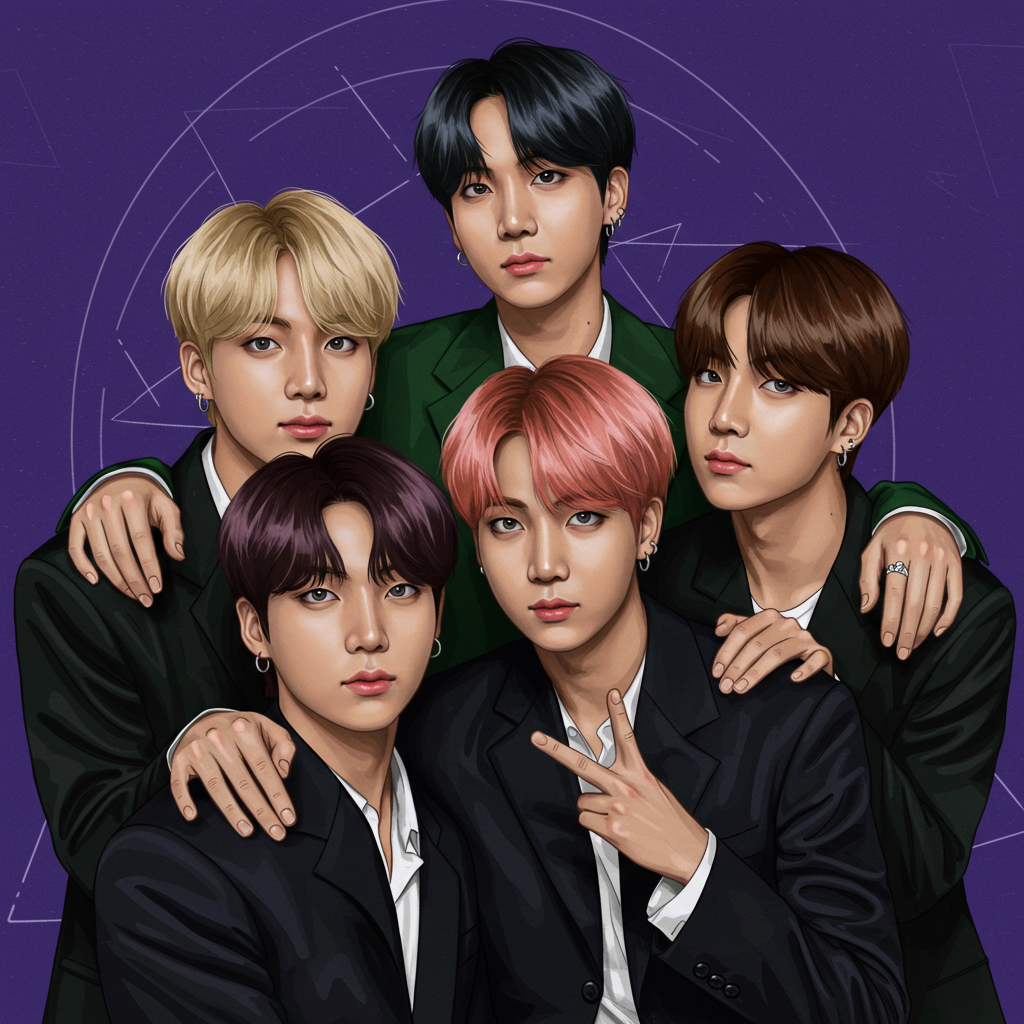After a mandatory two-and-a-half-year hiatus for South Korean military service, global superstars BTS are back. The return of the K-pop phenomenon has ignited immense excitement among their dedicated fanbase, known as the ARMY, but they re-enter an industry that has significantly evolved and faced new challenges in their absence.
For millions of fans worldwide, the wait has felt both agonizingly long and surprisingly fast. Stephanie Prado, a devoted fan who moved from Brazil to South Korea partly due to her love for the group, describes the anticipation for their reunion as intense. Her presence at the recent BTS Festa, an annual anniversary event near Seoul, waving her ARMY bomb lightstick amidst a sea of fans, underscored the deep emotional connection the group holds.
The Long Awaited Reunion
The countdown to a full BTS reunion peaked recently as several members completed their military duties. RM, V, Jimin, and Jung Kook were among those discharged, with the oldest member, Jin, having finished service earlier. Suga is expected to be the last to return by the end of June, marking the potential return of all seven members.
The reunion is highly anticipated. Fans gathered outside agency headquarters and even traveled internationally to greet members upon their discharge. RM expressed readiness to “hit the ground running again as RM of BTS,” while V asked fans to “wait just a little longer” for the full group return. Jungkook, upon his discharge, thanked fans, noting his slight embarrassment about being back in the spotlight. The intensity of fan devotion was further highlighted by an incident involving a woman arrested for attempting to break into Jungkook’s home the day he returned.
For fans like Vuyo Matiwane from South Africa, visiting BTS-themed locations in Seoul and watching the discharge livestreams brought overwhelming emotions. Fara Ala, who traveled from the Netherlands, simply finding herself “breathing the same air” as the group was enough. The collective sentiment among the ARMY is clear: “The kings are back.”
Navigating the “Military Service Curse”
Mandatory military service, typically around 18 months in South Korea for able-bodied men, has historically posed a significant challenge, sometimes even proving fatal, to the careers of male celebrities enlisted at the peak of their success. The break can risk waning fan loyalty as new groups constantly debut, and the necessary maturity gained during service might dampen the youthful energy crucial to K-pop appeal.
However, BTS strategically staggered their enlistments to minimize the group’s full absence. Members like J-Hope successfully pursued solo activities, including global tours, during the hiatus. Music critic Kim Young-dae, author of BTS: The Review, suggests that if anyone can break this “curse,” it’s BTS. He notes their successful solo ventures made the hiatus feel “natural” and their return “smooth,” without diminishing their collective popularity.
A Shifting K-Pop Landscape
While BTS was on break, the K-pop industry itself underwent transformations. Industry watchers like Kim Young-dae felt a “core pillar was missing,” contributing to concerns about K-pop potentially “losing momentum.”
The genre’s sound and style evolved significantly. The third generation, led by acts like BTS and Blackpink (which also focused on solo releases), has given way to diverse and experimental fourth and fifth generation groups that debuted after 2018. While these newer generations lack a single dominant group like BTS, they appeal strongly to younger fans, creating a more varied landscape.
Beyond generational shifts, the industry has faced economic headwinds. Album sales, a key metric, have declined since a peak in 2023, coinciding with the absence of new group material from major acts like BTS and Blackpink.
Moreover, South Korean pop culture critic Park Hee Ah points to “difficult times” and “deeper problems” that surfaced during BTS’s absence. These include highly publicized controversies, such as the dispute between the hit girl group NewJeans and their agency, allegations of mistreatment by powerful agencies, and issues around harassment of stars by fans and trolls. The attempted break-in targeting Jungkook highlights the concerning extreme behaviors sometimes exhibited by fans.
Hope and the Road Ahead
Despite these challenges, many hope BTS’s return will inject renewed energy into the industry. Park Hee Ah believes their comeback will help refocus global attention on Korea’s music scene and bolster Korean soft power.
While the members are back, a new group album isn’t expected immediately. RM has expressed eagerness to make music, but solo schedules, like Jin’s global concerts and J-Hope’s domestic performances, and potential personal considerations for Suga following a past controversy, mean a full group release may not arrive until early next year.
Nevertheless, for the ARMY, the simple fact that BTS is back together is a powerful signal. Their return isn’t just about music; it’s a cultural moment eagerly watched by fans and industry observers alike, curious to see how K-pop’s biggest act navigates a changed world and whether they can indeed reclaim their unparalleled global dominance.
BTS’s comeback also fits into the broader narrative of the Korean Wave (Hallyu), where South Korean culture continues to make significant global inroads, following successes in film (Parasite), television (Squid Game), and even winning Tony Awards for musicals like “Maybe Happy Ending.” All eyes remain on BTS to see their next move in this dynamic landscape.



